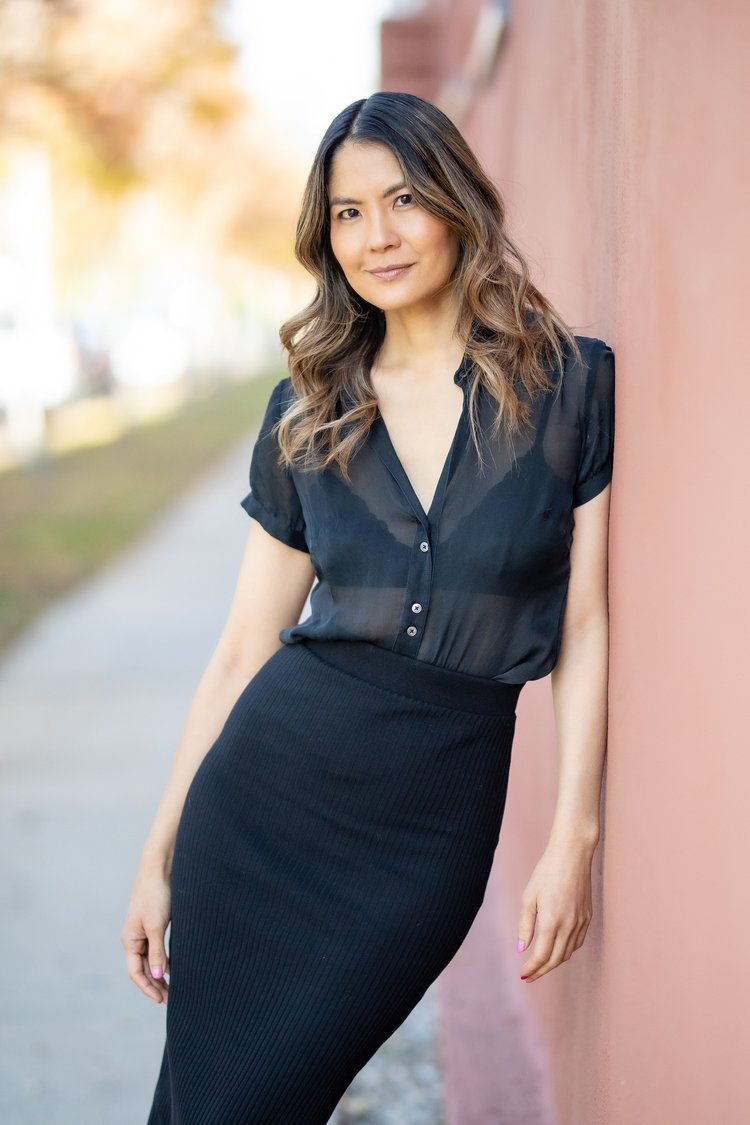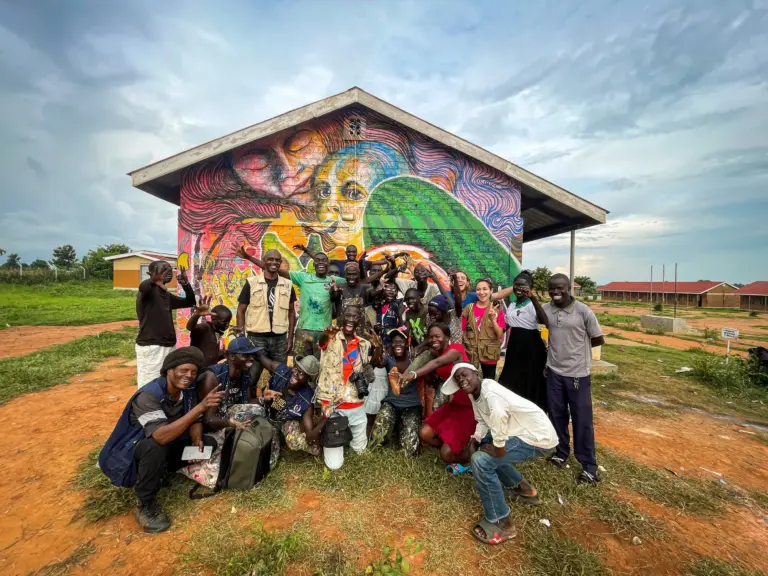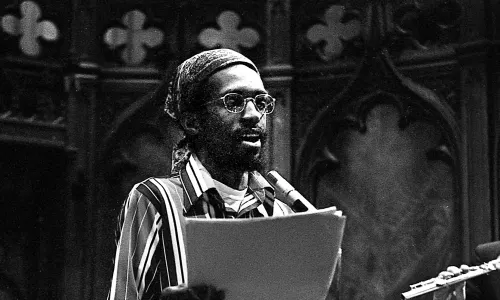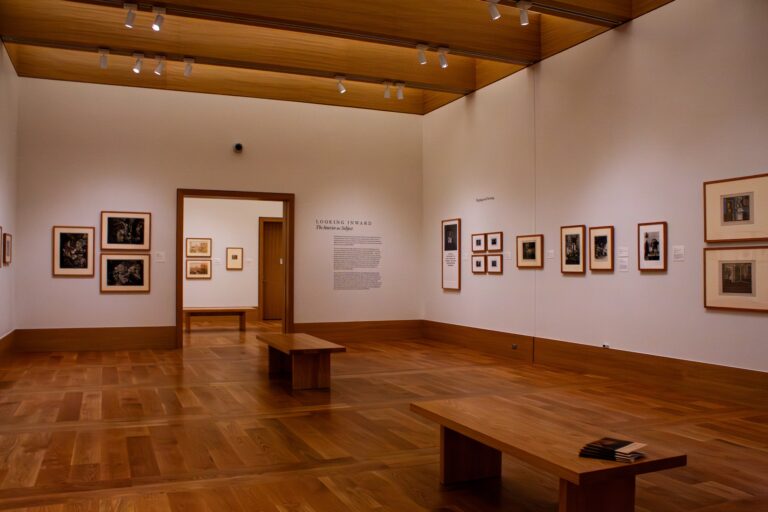AASC Hosts Lynn Chen ’98 for “I Will Make You Mine” Film Screening

On Friday, April 14 at 2 p.m. in the Goldsmith Family Cinema, the Asian American Student Collective (AASC) and the Wesleyan Film Series hosted a screening of “I Will Make You Mine,” a 2020 film written, directed by, and starring Lynn Chen ’98. Chen was also in attendance, taking part in a Q&A session after the film alongside her husband, Abe Forman-Greenwald ’98, the film’s editor. The screening was part of the programming for Asian American and Pacific Islander (AAPI) Heritage Month at Wesleyan, and occurred in tandem with WesFest, during which admitted students can take part in events that showcase a variety of aspects of University life.
“I Will Make You Mine” marks Chen’s first turn behind the camera after a decades-long acting career. A screening of one of her most well-known films, the 2004 lesbian romantic comedy “Saving Face” was part of AASC’s AAPI Month programming in 2021. As Chen explained to attendees, “I Will Make You Mine” is the third film in a trilogy, following “Surrogate Valentine” (2011) and “Daylight Savings” (2012). The previous two films, directed by Dave Boyle, centered on San Francisco-based indie musician Goh Nakamura playing a fictionalized version of himself. However, a third installment was not initially in the cards.
“I just asked [Boyle], ‘When are you going to finish the trilogy, Dave?’” Chen explained. “He said, ‘I’m never doing it. Indie films are so hard. I’m not going to do that.’ And I said, ‘Well, what if I just couldn’t let that happen?…. At this point, I’ve been an actress professionally for 20 years, and I had zero interest in stepping behind the camera. I’d dabbled with a little screenplay, but I was not a film major at Wesleyan. I was a music and women’s studies double major…. He said, ‘I’ll let you direct it.’”
While the first two films center on Nakamura’s character, “I Will Make You Mine” shifts perspectives, focusing on three of the women in his life: his high school friend and longtime crush Rachel (Chen), ex-partner and tense co-parent Erika (Ayako Fujitani), and musical collaborator Yea-Ming (musician Yea-Ming Chen, also playing a fictionalized version of herself).
“I’m a huge fan of Richard Linklater’s “Before Sunrise” trilogy,” Chen said. “I love the idea of following characters over a long period of time, but I’d never seen it done where you have a male perspective and a female perspective.”
“I Will Make You Mine” sees the lives of these characters intersect as Goh returns to Los Angeles for the funeral of Erika’s father. Much to Yea-Ming’s disappointment, he’s given up music, even getting rid of his guitar, to focus on a more stable career in customer service. What’s more, Rachel and her husband Josh (Mike Faiola) are on the rocks and in the middle of marital difficulties, making Goh’s reappearance into her life serendipitous and potentially disastrous.

The film, like the songs by Nakamura sprinkled throughout the soundtrack, has a light, gentle touch. With its sense of low-budget intimacy, its breezy 80-minute runtime feels less like a carefully structured, capital-S Story, and more like a series of real-life encounters, as we witness the characters bounce off each other with all the chemistry and tension that comes from their decades of history. But “I Will Make You Mine” is also quietly groundbreaking. Rather than concentrating on topics familiar to Asian American media, from immigration to assimilation to generational divides—as seen in media from “The Joy Luck Club” to “Everything Everywhere All At Once”—Chen’s film focuses on a more universal story of interpersonal relationships. It’s a story that, hypothetically, could have been made with characters of any ethnicity, but is offered additional texture by its cast.
“I’d just read so many scripts and seen so many movies that [were] always about family, shame, these [traditionally] Asian themes that I grew up with that were important to me, of course, but I was tired of [them],” Chen said. “I was tired of [movies about] family secrets or trying to explain what being an Asian American was like. When I sit around with my friends, we’re not sitting around talking about being Asian.”
Chen also spent time in the Q&A discussing and sharing memories from her time at Wesleyan. Chen’s father, an immigrant from Taiwan, also attended Wesleyan, graduating with a Ph.D. in 1976. Now, years after her own graduation, Chen reflected on the excitement she felt returning to campus and how her father must have felt similarly when she came to the University as a student. Chen also recounted some of the important lifelong connections that came from her time at the University, from her advisor, Associate Professor of Music, East Asian Studies, and Feminist, Gender, and Sexuality Studies Su Zheng, to Forman-Greenwald, to John Newman ’98, who also appears in “I Will Make You Mine.” Chen shared an anecdote about seeing the 2000 film “Chuck and Buck,” directed by Miguel Arteta ’89 and written by and starring Mike White ’92, and becoming inspired to pursue indie films herself.
“The community that has been created at Wesleyan… [has] really sustained me personally,” Chen said.
Forman-Greenwald added that he was personally grateful for the tutelage of Corwin-Fuller Professor of Film Studies, Emerita, Jeanine Basinger, the founder of the University’s Film Studies program and namesake of the building where the screening was held.
“She was an incredible leader and mentor, and being able to have that inspiration in an undergraduate setting is something I’m really grateful for,” Forman-Greenwald said.
Chen also reflected on the decades she has spent in the film industry and the increased opportunities for Asian American talent that exists today.
“What was the most frustrating was that I knew so many Asian actresses, because we’d all go in for the same parts,” Chen said. “We all knew each other so well, and we’re so different, and yet we’re all pitted against one another for the same roles.”
Part of what made “I Will Make You Mine” such a positive experience, Chen explained, was the creative freedom to tell stories that are not frequently seen in film, both for Asian Americans and women over 40.
“We’re not being seen on screen, we’re not being represented,” Chen said. “So we have to make this happen ourselves, we have to make our own art to make people pay attention to us.”
Oscar Kim Bauman can be reached at obauman@wesleyan.edu.








Leave a Reply